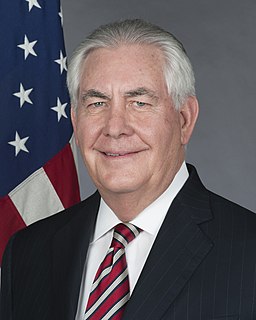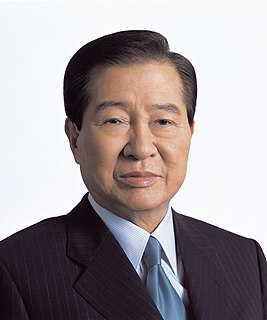A Quote by Charles Krauthammer
After the Soviet collapse, Marxism is a relic, a pathetic anachronism reduced to its last redoubts: North Korea, Cuba, and the English departments of the more expensive American universities.
Related Quotes
During the periods when South Korea played a more active role, the inter-Korean relationship was more peaceful, and there was less tension between the United States and North Korea. The last U.S. administration pursued a policy of strategic patience and did not make any effort to improve its relationship with North Korea. Also, the previous Korean government did not make any such efforts. The result is the reality you see today - North Korea continuing to advance its nuclear and missile program.
What you need to know about North Korea is that it's not like other countries like Iran or Cuba. In those countries, you have some kind of understanding that they are abnormal, they are isolated and the people are not safe. But North Korea has been so completely purged from the rest of the world, it's literally a Hermit Kingdom.
Think about it: Venezuela, Cuba, Nicaragua, Vietnam, North Korea, the former Soviet Union - they all start with the intention of leveling the playing field - or making things better for the little guy - and instead, they created misery, poverty, destruction and a permanent ruling class of bureaucrats.
It's important to understand the policy of the U.S. towards North Korea is to deny North Korea possession of a nuclear weapon and the ability to deliver that weapon. Our strategy has been to undertake this peaceful pressure campaign we call it enabled by the four no's.The four no's being that we do not seek regime change, a regime collapse, an accelerated reunification of the peninsula, and we do not seek a reason to send our forces north of the demilitarized zone.
I am very happy here [on Cuba], but I feel I have work to do in the United States. It's where I can identify with the total world struggle for socialism. But I think as a North American, as a Black North American, I have certain understandings - certain contributions - to make that are unique to the North Amerian experience.
It is absurd for anyone to think that Soviet "Marxism" is a correct application of the thought of Karl Marx. No doubt Soviet propaganda represented it this way. But who believes Soviet propaganda? It is remarkable (but maybe not so remarkable after all, when you consider their motives) that apologists for capitalism, who would not accept Soviet propaganda on any other point, are eager to agree with it on this point.
In contrast, Western historians, and those in South Korea, say the North attacked the South on June 25, 1950. Both sides agree that after the war began, the North Korean Army captured Seoul in three days and pushed as far south as Pusan before American troops arrived to drive back the North Koreans nearly as far north as the border to China.
































